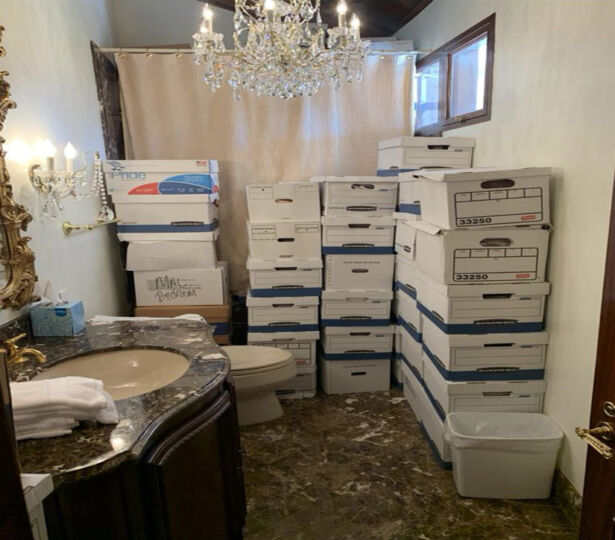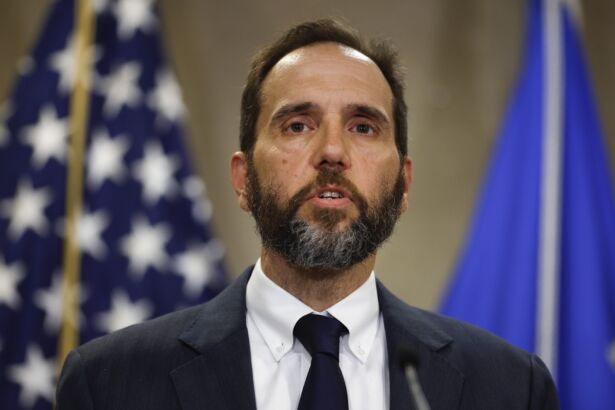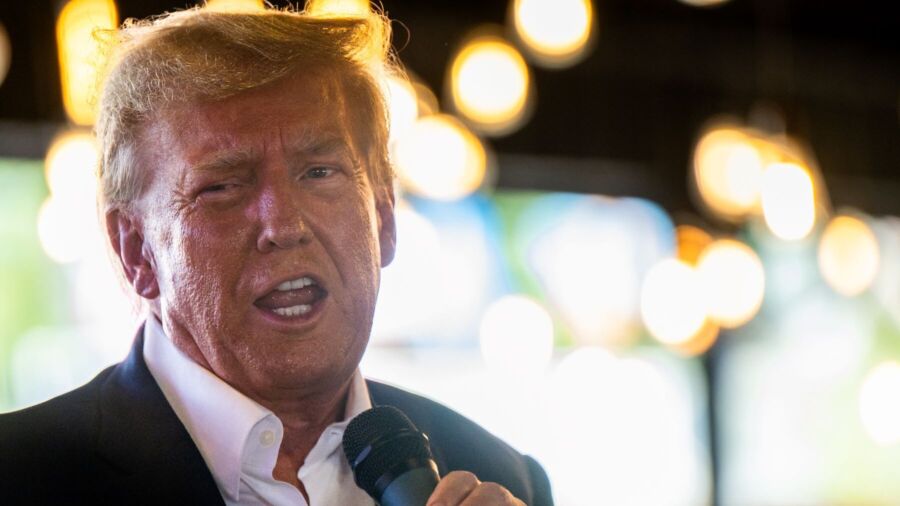Prosecutors with special counsel Jack Smith on Aug. 14 objected to a request by former President Donald Trump’s lawyers to set up a sensitive compartmented information facility (SCIF) to allow him and his legal team to discuss the classified documents in the case against him, arguing the move would amount to “special treatment.”
In a court filing (pdf) to U.S. District Court Judge Aileen Cannon, prosecutors with Mr. Smith pushed back against President Trump’s request, claiming that the 2023 Republican presidential candidate was seeking “special treatment that no other criminal defendant would receive and that is unsupported by law or precedent.”
Prosecutors further claimed that President Trump’s request for the SCIF was based on a “misrepresentation” of the requirements set out in the proposed protective order issued last week by Judge Tanya Chutkan.
That protective order stated that President Trump and his legal team were not allowed to disclose “sensitive materials,” including recordings, transcripts, and interview reports, to anyone who is not part of his legal defense in the case.
“The proposed protective order requires that any discussion of classified information between Trump and his attorneys take place in a sensitive compartmented information facility (‘SCIF’); it does not require, as Trump maintains, that all discussions take place in the same SCIF where classified discovery will be housed,” prosecutors with Mr. Smith wrote in their court filing.
“As such, there is no need to modify the proposed protective order on that basis—much less to include in the order approval to ‘re-establish’ a secure area at an unidentified location used during Trump’s presidency, which is likely a reference to one of his homes,” they continued. “Creating a secure location in Trump’s residence—which is also a social club—so he can discuss classified information would be an unnecessary and unjustified accommodation that deviates from the normal course of cases involving classified discovery.”

‘Special Treatment’
Prosecutors additionally claimed in their response that President Trump’s request amounted to “special treatment” because he was “asking to be the only defendant ever in a case involving classified information (at least to the Government’s knowledge) who would be able to discuss classified information in a private residence.”
They also insisted that the Mar-a-Lago location was unsuitable for such a request because “it is a social club” and claimed that President Trump had failed to specify what steps he would take to secure space at the residence.
Lawyers for President Trump had earlier this month requested the SCIF be reestablished at a “secure area at an unidentified location” previously used to review classified documents during his presidency so that they can prepare an adequate defense in the case against him.
Reestablishing the secure location, his lawyers argued, would allow their client to safely and securely discuss with this legal team, “in a manner that is consistent with government security protocols” the classified documents that prosecutors allege he illegally stored at his Mar-a-Lago resort.
President Trump has been charged with 38 counts of willful retention of national defense information, obstruction, and making false statements.
He has pleaded not guilty in the case.

‘Immense Practical and Logistical Hurdles’
While the request by President Trump’s legal team did not specifically state Mar-a-Lago as the preferred location for the SCIF, it did reference a location in the Southern District of Florida that was used during President Trump’s time in office to review highly-sensitive documents.
The request also noted that President Trump and his legal team plan only to discuss “but not review” the classified information that is currently under 24-hour full security protection.
“This request is based on the immense practical and logistical hurdles and costs that make it virtually impossible for President Trump to make regular trips to a public facility to discuss classified discovery material with counsel as necessary to conduct a defense consistent with the rights afforded by the Constitution,” lawyers for President Trump wrote in their request (pdf).
“Both the required security protocol surrounding President Trump’s travel and the challenges surrounding the media’s and public’s intense focus on this prosecution pose an enormous obstacle to our ability to provide counsel to President Trump regarding classified matters, which are, no doubt, essential to this case,” they continued.
“Our proposed alternative is both reasonable and appropriate, given the extraordinary and unprecedented circumstances of this case,” President Trump’s lawyers concluded.
President Trump, who is facing mounting legal challenges, is set to go on trial in the classified documents case in May 2024.
On Monday, the Republican 2024 candidate was also indicted by a grand jury in Fulton County, Georgia in relation to alleged efforts to challenge the results of the 2020 presidential election in the state.
From The Epoch Times


